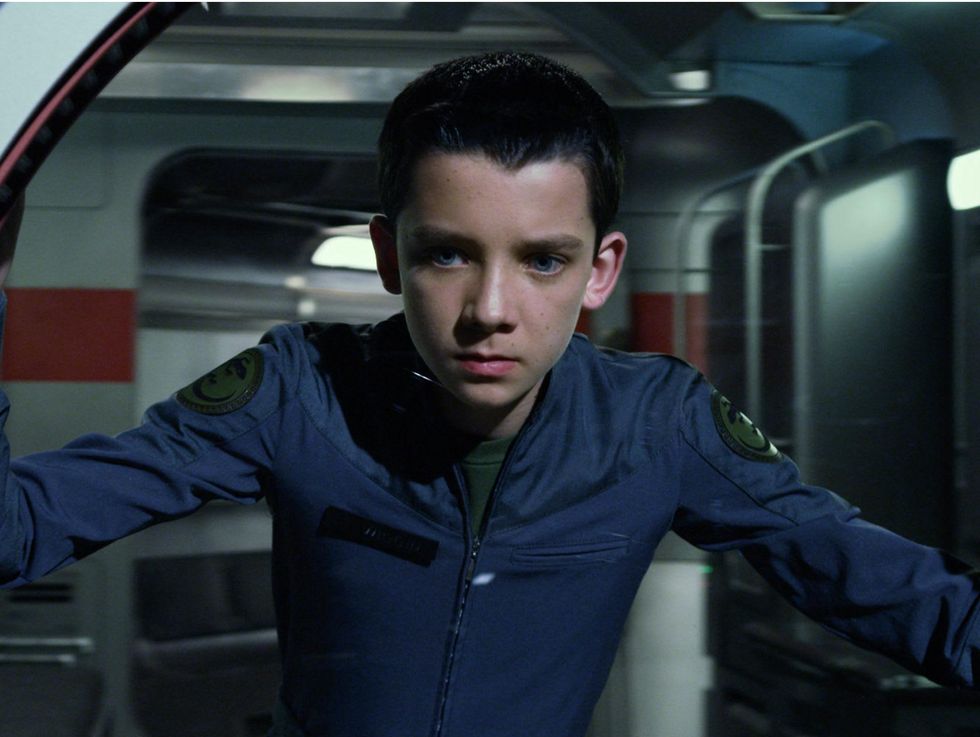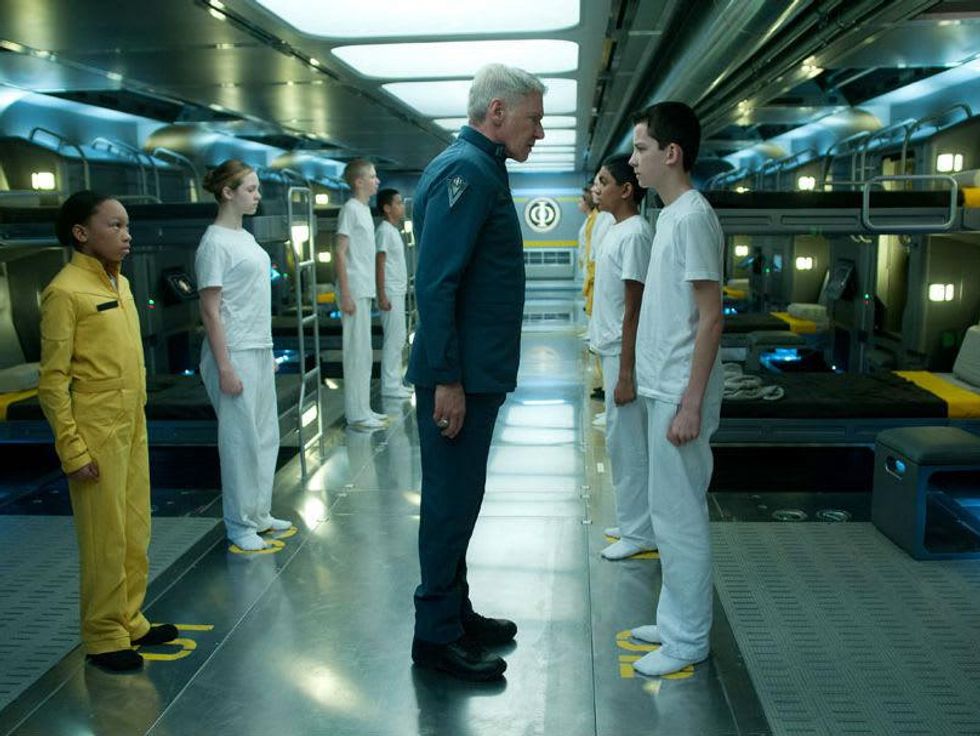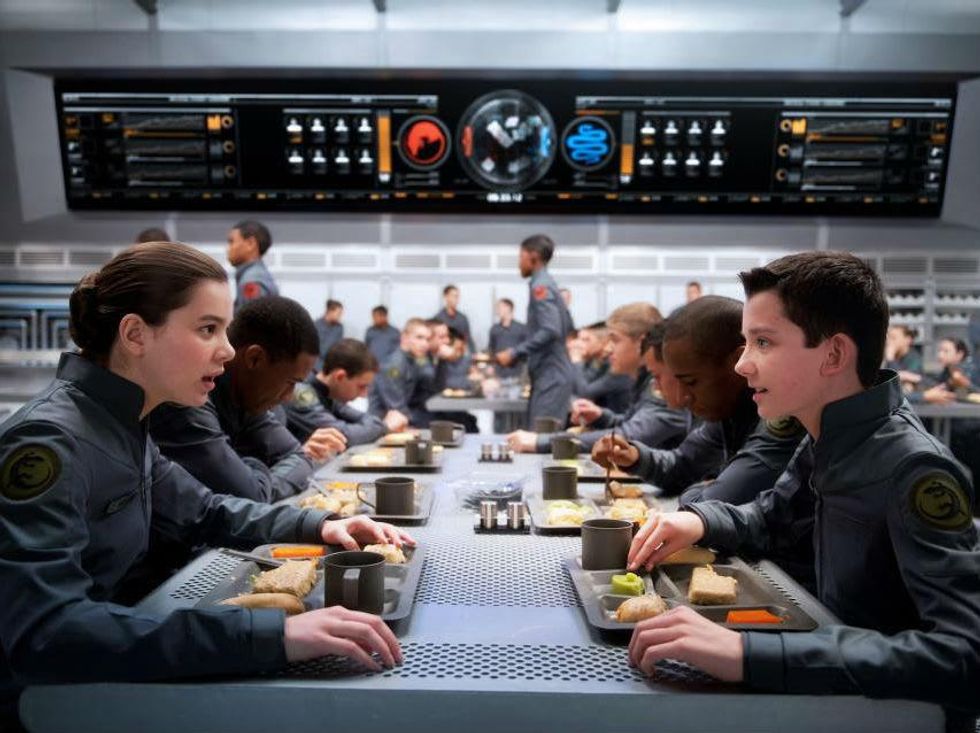Another End Times Movie
Ender's Game speeds through story and loses audience along the way
In a way, Ender’s Game — based on the 1985 novel by Orson Scott Card — is coming out at exactly the wrong time. It’s a futuristic space movie released just weeks after the harrowing and seemingly realistic Gravity took the world by storm. It’s set in a dystopian society where children are counted on to save the world, much like the hotly anticipated Hunger Games sequel, Catching Fire, coming November 22.
At its center is a boy named Ender Wiggin (Asa Butterfield), one of a group of children recruited by the International Fleet, led by Colonel Graff (Harrison Ford), to help protect Earth against the return of aliens known as Formics. The Formics attacked the planet 70 years earlier, and the alliance has hoped one child will emerge as the ultimate leader against a seemingly unstoppable force.
The story doesn’t stand up to Asa Butterfield’s performance; writer Gavin Hood takes many shortcuts to get to the end game more quickly.
Despite Ender’s relatively timid demeanor, Graff handpicks him because of his skills, especially in training video games.
Once onboard a space station base orbiting over Earth, Ender rockets through various levels of military school, earning the admiration of Graff and other higher-ups and the enmity of some trainees. But will simulated battles be enough when it's time for the real thing?
There are many pleasures to be had along the way, most involving Ender's constantly going his own way. His outsmarting of the training programs and other trainees is lots of fun to watch, and it earns him followers like fellow trainees Petra (Hailee Steinfeld) and Bean (Aramis Knight).
Most of the success of Ender’s Game relies on the talents of Butterfield, and in selecting him to play Ender, writer/director Gavin Hood chose wisely. Butterfield’s expressive eyes and quiet confidence made his role in Martin Scorsese’s Hugo memorable, and he proves here that a similar performance can work in a completely different world.
But it’s the story that doesn’t quite stand up to Butterfield’s performance. Even those who haven’t read the book — and I count myself in those ranks — will recognize that Hood takes many shortcuts to get to the end game more quickly. It’s a sacrifice all filmmakers must make when adapting a book, but even still, a tad more background information would have been helpful in illuminating some of the conflicts, both personal and otherwise.
This manifests itself most as the film reaches its climax and little seems to be at stake, either story-wise or emotionally. Ender himself goes through a complex series of emotions toward the end, and rightfully so, but they don’t really translate to the audience.
Not helping matters is the mixed bag of performances. The leads — Butterfield, Ford, Steinfeld, Viola Davis and Ben Kingsley — all come through with shining colors. But some supporting actors don’t quite fit the bill, especially Moises Arias and Conor Carroll as rival trainees.
Ender’s Game is part of a series of books, and the ending leaves no doubt that the filmmakers would like to have the chance to tell more of Ender’s story. If they do, they need to find a way to make it more compelling, as this one never truly connects.




